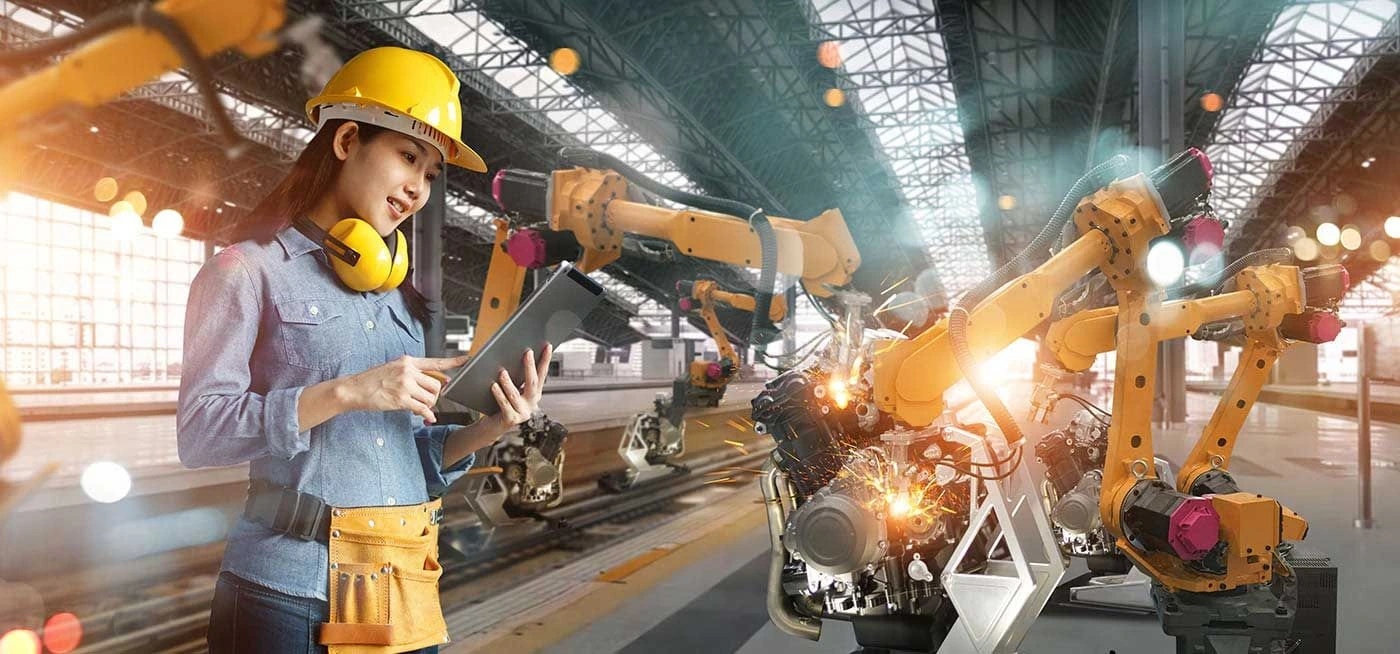In today’s ever-developing Industry 4.O “Upskilling†is synonymous with the work culture. Companies across the world are looking for a multi-skilled workforce who are open to the idea of learning and re-learning. Employees too look for jobs that provide them with opportunities to upskill themselves so that they are at par with new developments and skills.
Increased smart automation has taken every industry to the next level. The automotive sector is highly impacted by new technologies--- IoT, AI, Machine Learning, and Data Analytics. Machines are overpowering and revolutionizing the modern production in the sector and OEMs too are realizing the growing need for an upskilled workforce to operate in a highly digitized world.
With Metaverse being the technology of the future, the automotive sector will eventually have to embrace Augmented Reality (AR) and Virtual Reality (VR) based skilled learning to stay ahead of the game. Upskilling and Reskilling at every single level of the workforce—from engineers to roadside mechanics to create globally competent talent with specializations will be the need of the future.
Upskilling the technicians in the automotive sector
At present, the role of service technicians is mostly to deal with general servicing like checking the coolant, general repairs of vehicles etc. But with new technologies coming in and competition growing immensely, the automotive sector will need a multi-skilled workforce. In the near future, repairing and production of every single vehicle will require software updates, use of technology to diagnose which part of a vehicle needs replacement or recalibration.
The upcoming technicians in the industry will need to be skilled with software that can enable quick, easy services for the customers. There is no denying the fact that machines are smarter and we need to ensure that our skills also match it.
Other than upskilling the existing workforce, the industry-academic partnership to ensure the right skills for the upcoming technicians will also be vital. The ITIs need to focus on a curriculum that is industry-driven and not largely mechanical. The educational institutions will have to ensure highly skilled youngsters who can perform innovative tasks related to the technology.
Upskilling in the manufacturing sector
In the manufacturing sector too, all machines will be interconnected. Running diagnostics through Big Data, 3 D Printing, and understanding the programming of an overall machine will be expected from the coming talent. The pandemic has made the automotive industry to be highly tech-oriented so that tasks can be handled from any place, any time.
Manufacturing will be highly influenced by the machines and will involve high-tech apps for the maintenance of the vehicles even from a remote location. The upcoming talent will have to be well-versed with the overall programming of a machine rather than having one specific skill.
The upcoming years for the automotive sector will be very crucial for its overall growth. Provided that the customer behaviour is constantly changing due to new interventions in technology, OEMs will need a more skilled and upskilled workforce that ensures a seamless service experience for the customers.
In the coming decades, upskilling will not be a mere skill but a necessity in the automotive sector.






Comments (0)
Jul 04, 2022
Views (1603)